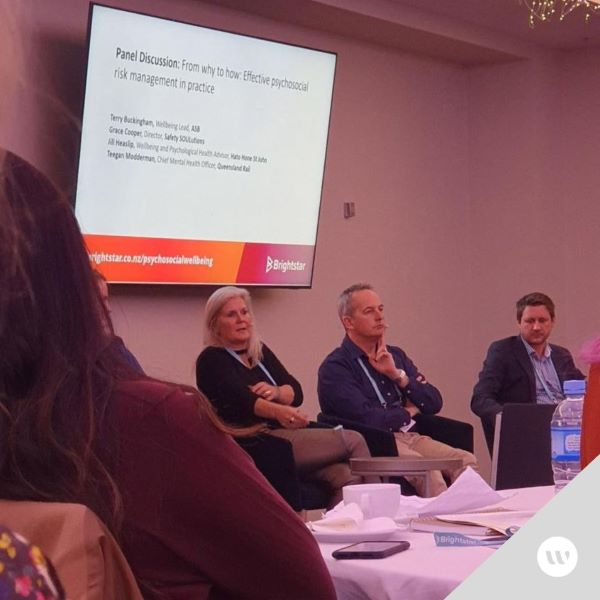The conference, organised by Brightstar, brought together a diverse group of professionals, all united by a common goal: improving the mental wellbeing of those who serve the front lines. From firefighters to lifeguards, the stories shared painted a sobering picture of the challenges faced by these essential workers and the innovative solutions being implemented.
The conference showcased a range of perspectives, all with one central message: what your workplace does matters.
Jeff Hutchins, Director of Team Member Health and Wellbeing at The Christ Hospital Health Network in Cincinnati, Ohio, USA, opened the day, sharing a case study of a multi-level approach to care and support for workers. He emphasised the need for a multi-faceted approach to wellbeing, acknowledging the intricate nature of frontline work environments. His words resonated with attendees, highlighting the importance of not just preventing harm, but actively promoting thriving in these demanding roles.
Josh Darby, a Senior Firefighter at Fire & Emergency NZ, presented research that highlighted a crucial link between organisational support and mental health outcomes. His findings, backed by the Movember Foundation, revealed that firefighters who felt supported by their organisation were less likely to report mental health issues, even when exposed to high levels of trauma. It's a powerful reminder that the culture we create within our organisations can have a profound impact on individual wellbeing.
The power of peer support was further emphasised by Tiffany Nightingale from Hato Hone St John. Reflecting on the organisation's response to Cyclone Gabrielle, she noted how having a support network of peers who were well-rested and emotionally available made a significant difference. It's a testament to the idea that sometimes, the most effective support comes from those who truly understand the challenges we face.
Ari Peach from Surf Life Saving New Zealand shared valuable insights into developing a peer support program for a large, diverse workforce. His emphasis on dedicated staff, diversity, and ongoing training underscores the need for a thoughtful, structured approach to peer support initiatives.
The conference also delved into the power of supportive leadership, with Dr Tim Williams from MindMatters Clinic stressing the importance of trust and empathy. His simple yet powerful advice - "trust your people" - serves as a reminder that effective leadership in high-stress environments starts with genuine human connection.
The work of the groundbreaking program Te Kiwi Maia, co-founded by Rebecca Nelson, highlighted the ongoing need to destigmatise mental health challenges among frontline workers. Its approach to rehabilitation and respite offers a model for holistic support that addresses both the physical and psychological needs of first responders.
A panel discussion on responding to violence and aggression towards staff brought to light the importance of organisational culture and early intervention. Viv Corin from Auckland Transport emphasised the critical nature of those first conversations following an incident, reminding us that how we respond in the immediate aftermath can set the tone for long-term recovery.
Catherine Parker from Te Whatu Ora Te Tai Tokerau shared an inspiring example of employee-led wellbeing initiatives. By giving agency to their staff, they've created a model that empowers employees to take an active role in shaping their work environment.
As New Zealand continues to navigate the complex landscape of frontline worker wellbeing, the insights shared at this conference offer a roadmap for organisations looking to enhance their support systems. The growing recognition of peer support programs and the emphasis on empathetic leadership signal a positive shift in how we approach mental health in high-stress work environments.
The challenge now lies in translating these insights into actionable strategies that can make a real difference in the lives of frontline workers. As we move forward, it's clear that work starts well before disaster strikes and the time for action is now.
Key takeaways
- Comprehensive support is crucial: The conference highlighted the importance of a multi-layered approach to mental wellbeing, where organisational support, peer networks, and empathetic leadership all play a vital role in helping frontline workers to thrive.
- Peer support makes a difference: The power of peer support was a recurring theme, with real-life examples showing that having a network of understanding colleagues can significantly enhance coping and emotional wellbeing in high-pressure environments.
- Leadership shapes wellbeing: Trust and empathy from leadership aren’t just nice to have—they’re essential. The discussions made it clear that leaders who genuinely connect with their teams can create a culture where mental health is prioritised and protected.
Want to read more?
Sign in below if you're a Revolutionary (member).
Not a member yet?
Join in seconds! Just $10/month (+ any tax).
Cancel anytime.
Be a revolutionary and join now










